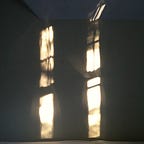Lived Through This
The Hidden Cost of My Parents’ Secrecy
Their choice to hide my biology has forever altered how I see myself
The day after I found out I was donor-conceived, I spent the afternoon walking through the streets of midtown Manhattan, wondering if anyone I passed by could be a relative. The information I had about the anonymous sperm donor my parents used was minimal: He was Jewish and had been in medical school in the ’80s. As I strolled by hordes of Jewish-looking middle-aged men, with the same brown eyes and brown hair my genes expressed, the unlikelihood of ever meeting my biological father weighed on me.
I was proud of myself for being realistic. It was borderline laughable, contemplating an accidental run-in with or street-sighting of a genetic relative. Yet I felt a fierce urgency to find out whose DNA I was walking around with: 50%. An equal amount to my mother’s.
My parents were in their thirties when they found out my dad was infertile. It was the 1980s, they’d recently married, and they wanted to start a family — but couldn’t the biological way. They’d turned to artificial insemination with anonymous donor sperm to have me, to build their family. But they also made the decision to tell no one — not even me.
